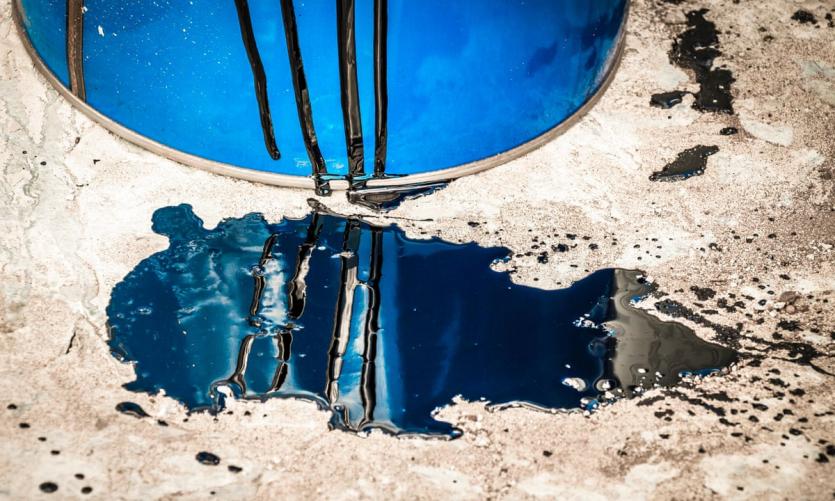When paint is spilled, PFAS make their way into the water system. They exist in rainwater at higher concentrations than the standards set for rivers. Photo:Alamy
By Patryk Krych | The World Daily | SEPTEMBER 16th 2021
According to a recent analysis, the production of ‘forever chemicals’ – thus named due to the length of time in which they remain in the environment, is greatly contributing to climate change due to the intensity of their produced greenhouse gasses.
The forever chemicals, also known as PFAS chemicals, were closely researched using Environmental Protection Agency data. What they found was that the chemicals were among the most toxic substances being used widely across consumer products.
Not only this, but it was also found that the largest PFAS production plant in the US was also its second largest emitter of HCFC-22 – and incredibly destructive greenhouse gas, known to be around 5,000 times more harmful than carbon dioxide.
“This is a sad-but-clear example of how toxic chemicals and climate change are connected: manufacturing PFAS chemicals not only pollutes people and the environment, but releases potent greenhouse gases, adding to the climate crisis,” said the science director for Toxic-Free Future, as well as co-author of the report, Erika Schreder.
Under a 1987 international environmental treaty called the Montreal Protocol, the emission of HCFC-22 gasses was banned worldwide. This protocol was put forward precisely due to how destructive the greenhouse gas is known to be to the ozone layer, making it one of the greatest contributors to climate change.
“If these chemicals continue spreading around the globe, there will be no turning back,” said Ninja Reineke, Head of Science at CHEM Trust.
The US-based chemical company, Chemours, had recently been taken to court in a landmark case over its alleged inaction over the production of the toxic forever chemicals, at the EU Court of Justice.
There are plenty of PFAS producing plants all across the US. The reason for which many of them are still in operation can mainly be attributed to a loophole in the Montreal Protocol, which allows the emitting of the dangerous HCFC-22 gas when it’s used as an intermediate in the manufacture of another chemical – such as of PFAS.






